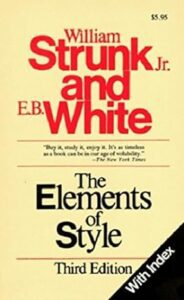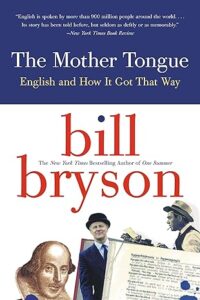Capitol vs Capital: What’s The Difference?
Today, we’re going to explore two words that often get mixed up:
“Capitol” and “Capital.”
They sound super similar, but they play different roles in our sentences.
Short answer
“Capitol” is all about buildings where lawmakers meet to make laws, think big, fancy government buildings.
On the other hand…
“Capital” can mean a few things: it’s the city that’s the seat of government in a country or state, it’s also used to talk about uppercase letters (like the big ‘A’ at the beginning of a sentence).
So, if you’re ready to crack the code on “Capitol” vs. “Capital,” stick with me.
Definition of Capitol
Alright, let’s zoom in on “Capitol.”
This word is all about buildings, but not just any buildings.
We’re talking about specific ones where government folks gather to make laws and decisions. Think of it as the stage where a lot of political action happens.
For example, in the United States, the “Capitol” refers to the building in Washington, D.C., where the U.S. Congress meets. It’s a big, impressive building with a dome, and it’s where senators and representatives do their lawmaking thing.
So…
When you hear someone say, “The bill was passed in the Capitol,” they mean it got the green light where all those important lawmakers meet.
“Remember, “Capitol” is all about the specific spot where the action in politics and lawmaking is happening.”
Definition of Capital
Now let’s switch gears to “Capital.”
This word is a bit of a multitasker in the English language, with a few different but related meanings.
First up, “capital” can refer to a city that’s the official seat of government in a country or state.
For instance, “Paris is the capital of France,” means Paris is the main city where the French government is based.
*It’s like the headquarter city for all the big government decisions.
“Capital” also steps into the world of finance, where it refers to money, especially funds used to start or maintain a business.
In this context, saying something like, “They invested capital in the new business,” means they put in money to get the business up and running or to keep it going.
Lastly…
There’s “capital” in the alphabet world, referring to uppercase letters.
Think of the big letters at the beginning of sentences or used for proper nouns, like in “The Capital letter ‘A’ starts the alphabet.”
Etymology and Historical Usage
Delving into the etymology and historical usage of “Capitol” and “Capital” can provide us with a fascinating insight into how their meanings have been shaped over time.
Capitol
The word “Capitol” has a very specific origin.
It comes from the Latin word “Capitolium,” which was the name of the temple of Jupiter Optimus Maximus on Capitoline Hill, one of the seven hills of Rome.
This temple was a symbol of power and authority in ancient Rome.
Historically, “Capitol” started being used in English to refer specifically to the building in Washington, D.C., where the U.S. Congress meets.
Over time, it came to be used for similar buildings in other states and countries where legislative bodies meet.
Capital
“Capital” comes from the Latin “caput,” meaning “head.”
Initially, it referred to something being of primary importance or “head” in a literal or figurative sense.
Over time, “capital” evolved to mean the city that serves as the administrative center of a country or region, reflecting its ‘head’ status in governance.
In finance, “capital” came to signify the wealth or assets that were the ‘head’ or main resources of a business.
And in writing, “capital” letters are the ‘head’ or leading characters, starting sentences and highlighting proper nouns.
Comparative Analysis
When comparing “capitol” and “capital,” it’s essential to understand their distinct connotations and contexts to use them accurately.
“Capitol”:
- Connotations: “Capitol” carries a specific and singular meaning. It’s directly associated with a building where a legislative body meets. It’s a term steeped in political and governmental significance.
- Usage: Used exclusively to refer to the building itself.
- Example: “The bill was debated in the Capitol.” Here, “Capitol” refers to the specific building where legislative discussions take place.
“Capital”:
- Connotations: “Capital” is a multi-faceted word. It can denote importance or preeminence, as in a capital city being the most important city in a region or country. In finance, it refers to wealth or assets. And in writing, it refers to uppercase letters.
- Usage: Used to describe a city, financial assets, or an uppercase letter.
- Example 1 (City): “Berlin is the capital of Germany.” In this case, “capital” refers to Berlin as the primary city of Germany.
- Example 2 (Finance): “They raised enough capital to start their business.” Here, “capital” is used in the context of financial resources.
- Example 3 (Letter): “Please write your name in capital letters.” “Capital” in this sentence refers to uppercase letters.
Side-by-Side Comparison:
| Aspect | Capitol | Capital |
| Meaning | A building where a legislative body meets | (1) A primary city, especially the seat of government; (2) Financial assets; (3) Uppercase letters |
| Usage in Sentence | “The state’s legislators met at the Capitol.” | (1) “Tokyo is the capital of Japan.” (2) “They invested significant capital in the project.” (3) “Write your name in capital letters.” |
Common Mistakes and Misuses
Understanding the difference between “capitol” and “capital” is crucial, as mixing them up is a common error. Here’s a breakdown of typical mistakes and some tips to help you remember their correct usage.
Common Errors
Using “Capitol” instead of “Capital”:
A frequent mistake is using “capitol” when referring to a city or money.
For example, saying “The capitol of France is Paris” is incorrect because “capitol” refers to a building, not a city.
Using “Capital” for the Building:
Conversely, people often say “capital” when they mean the specific government building.
Saying “The bill was passed in the state capital” should actually be “the state capitol.”
Practical Tips for Distinguishing Between Capitol and Capital: Comparison Table
| Feature | Capitol | Capital |
| Meaning | A building where a legislative body, like Congress, meets | (1) A primary city, especially the seat of government; (2) Financial resources; (3) Uppercase letters in writing |
| Example | “The meeting was held at the Capitol.” | (1) “London is the capital of the UK.” (2) “They invested their capital in stocks.” (3) “Write your name in capital letters.” |
| Mnemonic | ‘O’ as in the dome of the Capitol building | ‘A’ for city, Assets, and Alphabet |
Extra Tip
*If you’re talking about a specific government building, use “Capitol.” For anything else – a city, money, or an uppercase letter – “Capital” is your word.
Usage in Literature and Media
In literature, movies, and other forms of media, “Capitol” and “Capital” are used in ways that reflect their distinct meanings, adding depth and accuracy to the narratives.
“Capitol”:
In Literature: “Capitol” is often used when describing scenes or events taking place in a legislative setting.
For example, in a political thriller novel, you might read a line like,
“The senator walked briskly towards the Capitol, pondering the day’s crucial vote.”
“Capital”:
In Literature:
Writers use “capital” to denote the primary city or financial aspects.
In a historical fiction, an author might write, “The king entered the capital amidst great fanfare,” highlighting the city as a central place of government and power.
In Financial Contexts:
In novels or movies that revolve around business or economics, “capital” is often used in discussions of money and investment. A line like, “The entrepreneur needed more capital to launch his startup,” is common in such narratives.
In Reference to Letters:
In educational or instructional media, “capital” might be used in the context of writing, as in, “Remember to use a capital letter at the beginning of a sentence.”
Examples in Use:
Capitol (Building):
“As they approached the Capitol, the magnitude of their decision became clear.”
(Political Drama)
Capital (City):
“Paris has always been my favorite capital.”
(Travel Documentary)
Capital (Finance):
“The company’s initial capital was raised through crowdfunding.” (Business News)
Capital (Letters):
“Please write your surname in capital letters on the form.”
(Educational Material)
These examples illustrate how “capitol” and “capital” are used in different contexts in literature and media.
Resources
For readers who are keen to explore more about language and its usage, several books can provide valuable insights and deepen your understanding. Here’s a list of recommended books that cover a wide range of topics related to language, grammar, and writing:
“Eats, Shoots & Leaves: The Zero Tolerance Approach to Punctuation” by Lynne Truss.
This book offers a humorous look at the importance of punctuation in the English language.

“The Elements of Style” by William Strunk Jr. and E.B. White.
A timeless guide, this book is essential for anyone who wants to improve their writing style and grasp of English grammar.

“The Mother Tongue – English And How It Got That Way” by Bill Bryson.
Bryson provides an entertaining exploration of the English language, its history, and its quirks.

“Word Power Made Easy” by Norman Lewis.
This book is a comprehensive vocabulary builder that also enhances understanding of English usage.

“Between You & Me: Confessions of a Comma Queen” by Mary Norris.
Written by a former New Yorker copy editor, this book offers insights into the challenges of editing and the nuances of language.

“Dreyer’s English: An Utterly Correct Guide to Clarity and Style” by Benjamin Dreyer.
This modern guide from the copy chief of Random House is full of practical advice on how to write clearly and with style.

“Through the Language Glass: Why the World Looks Different in Other Languages” by Guy Deutscher.
This book explores the relationship between linguistic differences and perception.

Each of these books provides a unique perspective on language, covering a range of topics from grammar and style to the history and evolution of English. They are valuable resources for anyone looking to deepen their knowledge and appreciation of language.
